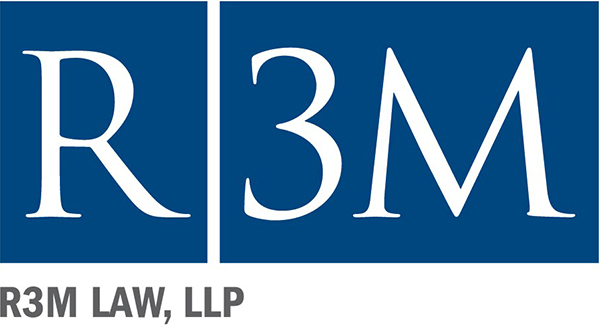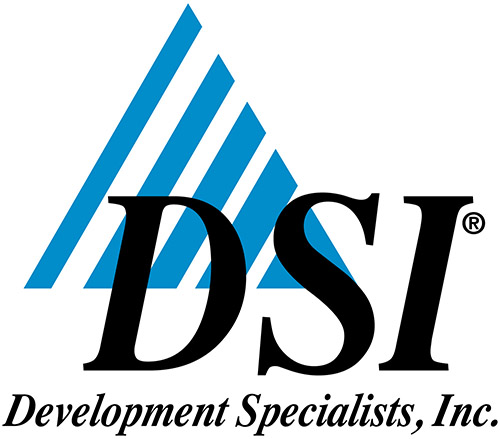Tue, June 02, 2020
Bankruptcy Taxation Part 1
A Whirlwind of New Tax Reforms in Bankruptcy
During this two-part bankruptcy tax program, the panel of insolvency tax experts will assess how the Small Business Reorganization Act of 2019 is impacting bankruptcy estates of individuals in Chapter 11 and discuss the corporate implications of the CARES Act and proposed regulations on Section 382 built-in items. The panel will consider tax planning and compliance while exploring Offer In Compromise and tax discharge issues. An overview of bankruptcy income tax return preparation for Chapter 7 and 11 cases and reporting for liquidation and litigation trusts in bankruptcy round out the topics for this highly technical program.
Panel:
Wed, June 03, 2020
Bankruptcy Taxation Part 2
A Whirlwind of New Tax Reforms in Bankruptcy
During this two-part bankruptcy tax program, the panel of insolvency tax experts will assess how the Small Business Reorganization Act of 2019 is impacting bankruptcy estates of individuals in Chapter 11 and discuss the corporate implications of the CARES Act and proposed regulations on Section 382 built-in items. The panel will consider tax planning and compliance while exploring Offer In Compromise and tax discharge issues. An overview of bankruptcy income tax return preparation for Chapter 7 and 11 cases and reporting for liquidation and litigation trusts in bankruptcy round out the topics for this highly technical program.
Panel:
Thu, June 04, 2020
Restructuring Crypto: A Bit About The Bewildering Blockchain Issues That Bubble Up As Bankruptcy Beckons
The terms “Bitcoin” and “blockchain” dominate the financial headlines, and legislators, judges, and professionals are scrambling to stay apace with technology and the demand for guidance and regulatory clarity. But what happens when crypto meets insolvency? Mt. Gox and other ripped-from-the-headline examples might be a sign of what’s to come in the crypto space. The beginning of the session will provide the fundamentals of blockchain technology and cryptocurrency. With that in place, the panelists will then tackle some of the tough questions that arise in connection with the potential insolvency and ensuing administration or liquidation of assets stored on a digital ledger—aka “crypto assets.”
Panel:
Third Party Releases
During this session, the panel will explore the controversial issues surrounding third party releases in bankruptcy plans. Discussion points include: why the availability of such releases is important to Debtors making a decision about whether to file a chapter 11 and in what jurisdiction to file; the availability of third party releases in chapter 15 cases dealing with foreign entities; the arguments available to creditors who will be adversely impacted by proposed third party releases; the issues that the creditor might raise in an objection to such releases, as well as considering whether a creditor who does not object will retain the right to challenge the releases after the plan confirmation becomes final.
Panel:
Municipal Financial Situations and Past Bankruptcies - The Effectiveness of Chapter 9
How effective is Chapter 9? Are these cities better or worse off? During this session, our experts will discuss past and present public sector restructuring situations, including the City of Detroit, Puerto Rico, distressed school systems and authorities, among others. Through war stories from past cases and a discussion of current trends, this panel will explore the impact of Chapter 9 and other municipal restructuring strategies.
Panel:
Tue, June 09, 2020
Financial Advisors' Toolbox Part 1
This program is designed to educate an intermediate practitioner about the fundamental financial advisory tenants of bankruptcy and restructuring. Discussions will include current and forward looking developments in the restructuring world and discussions relating to specific industries, current trends, and recent topics of interest. Topics include: Healthcare, Retail, Energy/Utility, Mass Tort, Subchapter V/Small Business Reorganization, and Industry Outlook and Trends.
Panel:
Wed, June 10, 2020
Financial Advisors' Toolbox Part 2
This program is designed to educate an intermediate practitioner about the fundamental financial advisory tenants of bankruptcy and restructuring. Discussions will include current and forward looking developments in the restructuring world and discussions relating to specific industries, current trends, and recent topics of interest. Topics include: Healthcare, Retail, Energy/Utility, Mass Tort, Subchapter V/Small Business Reorganization, and Industry Outlook and Trends.
Panel:
Thu, June 11, 2020
Market Trends in Light of COVID-19
During this session, our panel will talk about (a) the industries impacted by COVID-19, (b) the opportunities, (c) how do you restructure in the current environment, and (d) CAREs Act issues (how it extends the timeline, the treatment of the loans/grants in bankruptcy, etc.). They will also cover industry issues in energy (impact of low oil prices/negative prices), retail and healthcare.
Panel:
Trends and Strategies in Middle Market Lending
During this session, the panel will discuss recent trends in middle market lending, as well as strategies and considerations in a distressed environment. Each panelist represents the perspective of a different capital provider or advisor to capital providers, and the session will cover recent metrics and terms, where the market is going and what is driving those trends today.
Panel:
Small Business Reorganization Act of 2019: What you Need to Know Going Forward (SBMM)
During this session, our expert panel will address the impact of changes to the Bankruptcy Code resulting from the Small Business Recovery Act of 2019. We will look at the changes from a variety of perspectives including from the bench, from those pursing actions and from corporations on the receiving end. We will also explore the role of the Subchapter V Trustee and initial experiences during the first months of practice.
Panel:
Tue, June 16, 2020
Industry: Franchising
The last 15 years have seen an incredible expansion in the franchise space due to a multitude of factors. As a result, there has been an expansion of the need for experienced turnaround and restructuring professionals in this space. This panel will discuss the current status of the space as it relates to litigation, bankruptcy, sales, turnarounds, and lending. It will also explore the complex nature of a distressed situation that involves a powerful party getting a seat at the negotiating table; the franchisor.
Panel:
Farmers in Peril
Farming bankruptcies are soaring and recently hit a nine-year high. This panel will take a look at the financial issues that have been plaguing the farming industry, affecting both producers and processors. The discussion will cover the unique options that clients in this industry have to help them navigate through distress and how these protections differ from those for commercial clients. We will dig into nuances within the farming industry including Chapter 12, the Farmer-Lender Mediation Act, PACA / PASA, and much more. Finally, we will discuss thoughts on where the industry is heading in the future and whether or not trends in the farming industry will continue.
Panel:
The 5 W's of a Successful Mediation
Why does mediation matter? When is the right time for mediation? Who to pick as the mediator? Where should the mediation be held? What does a successful mediation look like? This panel will address these questions and much more.
Panel:
Wed, June 17, 2020
The Intersection of Mass Torts and Bankruptcy
This panel will survey the current environment for handling mass tort claims through a bankruptcy proceeding. Issues include: case timing and funding; available insurance coverages; definitions of property of the estate and rights to beneficial interests; applicable deductibles/SIRs and indemnification rights; available policy limits and exclusions; estimation of claims vs. negotiation, claims verification, claims administration, and motions to file class proofs of claim; investigating the business; fraudulent transfers; establishment of settlement trusts to handle claims; and planning for a viable/feasible solution and outcome whether in a for-profit or not-for-profit business setting.
Panel:
Tax Attributes in Reorganization: Is There a There There?
The author Gertrude Stein was known to complain about her hometown of Oakland, California. “There is no there there,” Ms. Stein said. Perhaps the same question can be asked about tax attributes in a reorganization. Exactly how valuable are they? This panel will weigh the relative merits of tax attributes in restructurings, and will evaluate the extent to which debtors, creditors, shareholders and stakeholders should go to the mat to try to capture tax benefits. They will also discuss the extent to which tax attributes can really help struggling companies, or whether they merely line the pockets of creditors.
Panel:
A Review of the SBRA & the Opportunity at Rehabilitation for Businesses (SBMM)
Chapter 11 has been a salvation for innumerable businesses since its enactment in 1978 as part of the Bankruptcy Code. For many reasons, however, its efficiency, especially for small businesses has eroded over time. One result? More and more troubled businesses and their constituents are turning to alternatives, such as ABCs and receiverships. Enter the SBRA: The Small Business Reorganization Act of 2019 (SBRA). Will it emerge as a game-changer for businesses looking for a chance at rehabilitation through chapter 11? Or will it be a bust as some pundits predict? Our panel of seasoned experts will walk through features of new subchapter V and its implications for all players in chapter 11, from the debtor to its newest member – the subchapter V trustee. At the time of the writing of this session description, the SBRA is still about a month away from implementation. By the time this session begins, the SBRA will have been in effect for approximately 16 weeks. This is a must-attend panel for any restructuring and insolvency practitioner who deals with small and medium-sized businesses and formerly affluent individual debtors.
Panel:
Thu, June 18, 2020
Small Business/Middle Market Borrowing (SBMM)
Please join us as we explore current middle-market credit trends/ capital accessibility and the impact on companies facing financial deterioration. We will examine the availability and timing of credit and its influence on maintaining viability in the current pandemic environment.
Panel:
Managing Risks and Capitalizing on Opportunities from International Economic Disruptions
This interdisciplinary panel will discuss and assess some of the most innovative operational strategies being undertaken by market participants today to mitigate risks while capitalizing on new growth opportunities.
Panel:
Keynote Speaker: Anita Alvarez
“Human trafficking and Money Laundering"
Anita's presentation will focus on defining human trafficking and spotting the red flags in financial institutions and corporations, etc. She will talk about how profitable the industry is, how it affects businesses and what can be done about it.
Speaker:
Wed, June 24, 2020
Liability Management
Particularly in light of unprecedented economic conditions, distressed and potentially distressed companies are increasingly seeking guidance on how to manage liabilities, preserve equity value, and extend runway. This panel of experts will address optimal tactics to implement liability management strategies, including amend and extend transactions, uptiering exchanges, drop-down exchanges, and discounted debt repurchases. We will also explain best practices with respect to implementing such strategies including governance, tax, and other relevant considerations. The presentation will conclude with a discussion of and lessons learned from several recent examples of notable liability transactions in the market.
Panel:
Keynote Speaker: Allen Sanderson
Sports, Economics and the Law: Important legislation and cases that have shaped how professional sports leagues function and are constrained. Plus, the economics of college athletics, including the case for paying players.
Speaker:
Navigating the Minefield of Emerging Corporate Governance Issues in Restructurings (Ethics)
This expert panel will address and discuss: The increased use of independent directors and special committees to address real or perceived conflicts and best governance practice; Emerging practices and realties of addressing governance issues within complex organizations compared to case law guidance; Increased presence and role of private equity and development of issues and impact on corporate governance in distressed situations; Increased presence of funded debt creditors with board seats and/or observer rights and the impact on the governance aspects of restructurings; Use of proper governance process to fend off examiner appointments and UCC investigations; and Issues and concerns affecting CROs and independent board member roles as they consider establishing proper governance process in complex restructurings.
Panel:
*(SBMM) Small Business / Middle Market Session
About AIRA
AIRA is a nonprofit professional association serving the bankruptcy, restructuring and turnaround practice area. AIRA's membership consists of accountants, financial advisors, investment bankers, attorneys, workout consultants, trustees, and others in the field of business turnaround, restructuring and bankruptcy. AIRA members are among the most trusted and sought-after professionals in matters dealing with limited capital resources and deteriorating operating performance.
Cancellation/Refund Policy
Refunds and Cancellations Policy—Cancellations made 3 or more days prior to a webinar are eligible for a refund, less a $25 cancellation fee. No refunds will be given for cancellations received less than 3 days prior to a webinar. Substitutions are allowed with written notice at least 3 days in advance of the webinar.
National Registry of CPE Sponsors
"Association of Insolvency and Restructuring Advisors" is registered with the National Association of State Boards of Accountancy (NASBA) as a sponsor of continuing professional education on the National Registry of CPE Sponsors. State boards of accountancy have final authority on the acceptance of individual courses for CPE credit. Complaints regarding registered sponsors may be submitted to the National Registry of CPE Sponsors through its website: www.nasbaregistry.org/.
Contact Us
221 W. Stewart Avenue, Suite 207
Medford, OR 97501
Ph: (541) 858-1665
Fx: (541) 858-9187
aira@aira.org
Copyright © 2026 Association of Insolvency & Restructuring Advisors



















